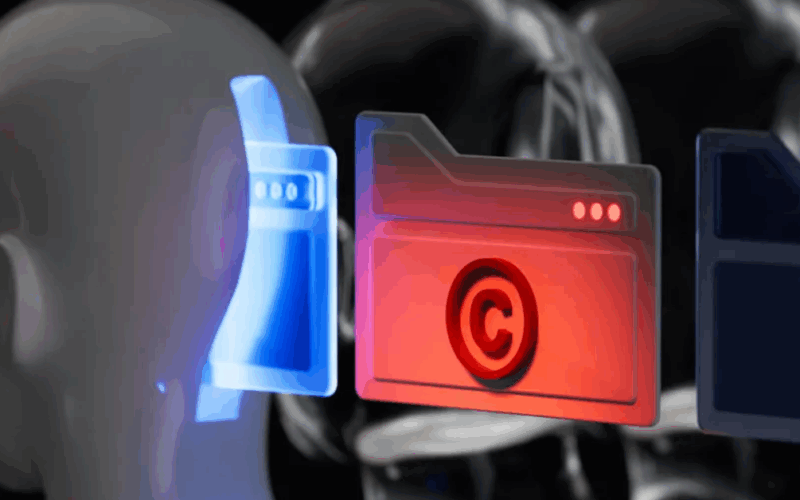Artificial intelligence (AI) is growing fast and changing how we live and work. From writing stories to creating music and art, AI tools are becoming part of everyday life. But with this rise, legal questions are popping up, especially about copyright and who owns the work AI creates. The U.S. is now facing many lawsuits about AI and copyrights, which could slow down innovation and waste valuable money.
These AI copyright lawsuits are a big problem because they can make companies and creators afraid to use new technology. This article explains why the U.S. can’t afford to get stuck in long legal battles over AI copyright. We’ll also show why a clear, balanced approach is needed to help everyone benefit from AI without risking creativity or business growth.
What Are AI Copyright Lawsuits?
AI copyright lawsuits happen when someone claims that an AI tool copied their work without permission. For example, if an AI writes a story or draws a picture by learning from real human creations, who owns the new work? The original creator? The AI developer? Or the user who asked the AI to create?
These questions are not easy to answer. The U.S. Copyright Office has said it won’t give copyrights to works made only by machines, but courts are still deciding on many cases. According to United States Copyright Office, a human must be involved for a copyright to apply. This uncertainty has led to many lawsuits, with companies suing each other over AI-generated content rights.
Why Lawsuits Can Hurt Innovation
While protecting creativity is important, too many copyright lawsuits can slow down the progress of AI technology. Companies spend large amounts of money on legal fees instead of improving AI tools or creating new products. Startups with fresh ideas may give up because they can’t afford expensive legal battles.
According to a report by Brookings Institution, legal uncertainties around AI copyright can deter innovation and economic growth. When companies are afraid to take risks, fewer new AI solutions reach the market. This is bad for consumers, workers, and creators who want to explore what AI can do.
The Cost to Creators and the Economy
Another problem with AI copyright lawsuits is that they don’t always protect the real creators. Sometimes, artists and writers find their work used by AI without permission and no reward. But suing giant tech companies is expensive and slow, making justice hard to reach.
On the other hand, if courts give too many rights to creators who sue over AI content, it could block useful AI tools and limit access to knowledge. Finding a balance is crucial to protect creators and encourage economic growth. The U.S. Citizenship and Immigration Services also highlights how fair policies can help protect jobs while supporting technological growth.
Finding a Balanced Approach
To avoid endless lawsuits and support AI development, the U.S. needs clear laws that consider both creators and AI developers. One idea is to create rules that allow AI to use existing works fairly under “fair use” laws, which help protect creativity without harming original authors.
Lawmakers and experts are discussing policies that define AI’s role in creative work and copyright. Clear guidelines will help creators get fair pay while letting AI innovation grow. This way, the country can use this powerful technology safely without many legal roadblocks.
Conclusion: Why It Matters to You
AI is changing the world, and the U.S. should embrace it wisely. If copyright lawsuits keep piling up, the country risks losing its place as a leader in technology and creativity. For young people, innovators, and creators, clear rules are key to building a future where AI helps everyone succeed.
By supporting balanced copyright laws, the U.S. can protect artists, encourage startups, and ensure that AI continues to be a tool for progress—not a source of endless conflict. The goal is a win-win for creators, companies, and users of AI.




